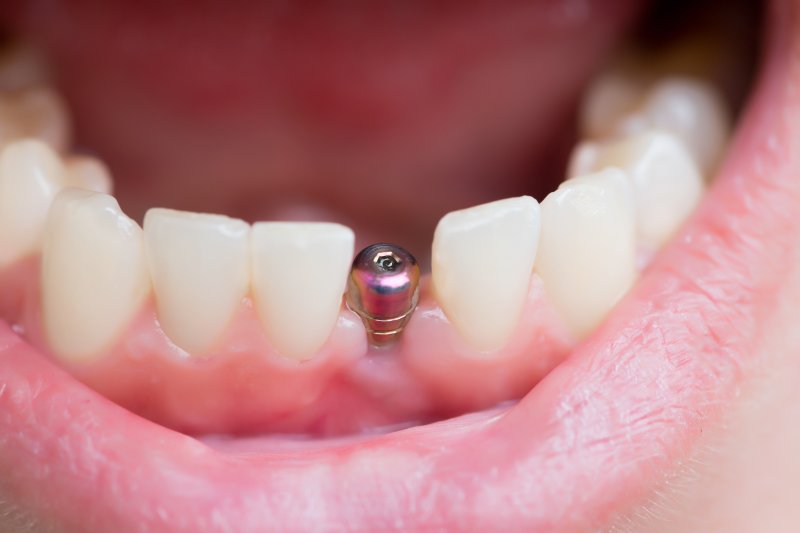
If you’ve heard about how dental implants have allowed millions of people to replace lost teeth with lifelike and functional restorations, you may have some questions about the process of getting them. Luckily, the post-operative period after receiving dental implants is incredibly well-researched, so your dentist will have no problem answering any questions you may have about what you can expect. Here are a few common inquiries about what happens immediately after getting dental implants along with their answers.
How Will I Feel After Dental Implant Surgery?
How you feel after having your dental implants surgically placed depends largely on the anesthetic treatment or sedation methods used. You may experience grogginess, blurred vision, and a lack of coordination, so it is not recommended that you drive or operate heavy machinery for at least twenty-four hours after the procedure.
As the anesthesia wears off, you can expect some soreness in the surgical area, but you will receive a prescription pain reliever or be recommended an over-the-counter medication to help keep you comfortable. The discomfort should diminish over the coming days, and applying an ice pack can help reduce pain and swelling. Many patients report that recovering from dental implant placement is far more pleasant than recovering from a tooth extraction.
When Can I Eat Something?
About an hour after the procedure, you may remove the gauze pads from the surgical areas and have something to eat. However, hard, crunchy, sticky, sour, salty, hot, or spicy foods may irritate your stressed oral tissues. It’s a great idea to stock up on soft, mild foods that can be easily prepared and eaten cold or at room temperature before receiving dental implants. A few ideas include:
- Mashed potatoes
- Applesauce
- Ice cream
- Macaroni and cheese
- Smoothies
It’s important not to drink through a straw for the first twenty-four hours after surgery, as the pressure shifts it causes in the mouth can damage your healing tissues.
Can I Smoke?
Smoking or using tobacco in any other form is absolutely terrible for your oral and overall health and one of the leading causes of dental implant failure. The noxious chemicals in tobacco smoke and juice cause your gums to harden in defense, and having to do this frequently can exhaust these tissues and cause them to recede. Nicotine also hinders your mouth’s ability to heal and fight infections.
Dental implants depend on the gum tissue for support, so smoking is a great way to prevent them from bonding sufficiently with your jaw so they can work well and last a long time. It’s best to quit this nasty habit several weeks before receiving dental implants.
Sticking to your dentist’s post-operative instructions is the best way to ensure that your dental implants heal well and last for as long as possible. With excellent care, your new teeth may serve you for several decades or even a lifetime.
About the Author
Dr. Hiren Patel earned his dental degree from the University of Colorado School of Dental Medicine in 2011 and has completed more than 500 hours of continuing education since then. He is proud to maintain memberships in the American Dental Association, the Academy of General Dentistry, and the International Congress of Oral Implantologists. His office in San Antonio offers general, restorative, cosmetic, and emergency dentistry as well as dental implant services. To learn more about keeping your dental implants in great shape, contact his office online or dial (210) 590-2736.
